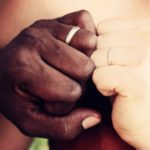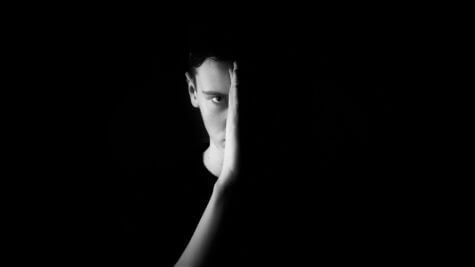OXFORD, Ohio — Black students who said they hold suspicious views of white people visualize white faces as less authentic and potentially hostile, a new study finds.
The first portion of a new series of studies, led by Miami University psychology professor Paige Lloyd, asked groups of 35 and 47 black students to look at blurry images of 400 pairs of white people’s faces and choose which represents “the average white person.” A “suspicion scale” was then averaged together by the researchers to determine participants who were high and low in their beliefs about whether whites behave positively toward people of color.
This perceived positivity was then divided into two groups: white people who do it for genuine reasons (low suspicion participants) and whites who behave kindly only under self-presentational (high suspicion) motives.

The results found that compared to “unsuspicious participants and controls,” black study participants held “less trustworthy, less authentic and sometimes more hostile representations of whites.”
The feeling held true even when the participants viewed smiling, seemingly positive faces of white people. Prior research has shown that white people afraid of coming off as racist actually disguise their biased beliefs by coming off as happier and friendlier.
Explains Lloyd: “Anti-prejudice norms lead whites to use positivity to conceal bias, sometimes in the absence of genuine interest in egalitarianism. Thus, people of color may question whether positive gestures from whites are authentic.”
The researchers note that preemptive suspicion by people of color could be used positively to identify disingenuous acts of kindness. However, low suspicion levels improve interactions from the start.
“Skepticism surrounding the authenticity of whites’ kindness may help suspicious people of color identify whites who are concealing bias, but it may also sometimes get interracial interactions off on the wrong foot.” says Lloyd in a Society for Personality and Social Psychology press release,
“Much of the existing work on intergroup relations has been through the lens of majority group members and has neglected minority perspectives,” adds Lloyd.
The researchers hope the study will put emphasis on the significance of including minorities for group activities and being as transparent as possible when it comes to the concerns minority members have about working with others.
The study, “The Face of Suspicion: Suspicion of Whites’ Motives Moderates Mental Representations of Whites,” is published in the May edition of the journal Social Psychological and Personality Science. Professor of Psychology at Miami University, Jonathan W. Kunstman, graduate student E. Paige LLoyd and data analyst Taylor Tuscherer are co-authors.

blacks are the most racist people.